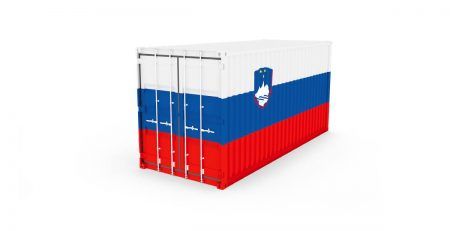Employers with a business in Europe have seen the coronavirus outbreak impact their business. In most ways, business in Slovenia was affected with measures the country imposed to prevent the spread of the disease. Sometimes this meant closing bars, restaurants, stores or other non-essential businesses for the time of the epidemic. This affected many businesses in terms that the companies did not have sufficient work for their employees. Also, the companies that are still working have experienced a decrease in orders due to the virus. The Slovenian government is trying to support those companies by introducing novelties when it comes to covering salary compensation and contributions for the employees. It is a topic we will be covering in this article.
Are you a business owner in Slovenia? Do you need help in choosing the governmental measures that are most suitable for your company? Are you having trouble understanding what is best for your business? Call our experts on +386 1 6006 270, Viber/Whatsapp +386 40 530 718 or write to us on data@data.si
Data d.o.o. has been offering support to entrepreneurs in Slovenia for 30 years. In addition to company registration services, we also provide professional accounting services. Additionally, we also have a specialized legal department that supports entrepreneurs with every aspect of Slovenian business legislation. They can also assist you in implementing the measures that the state offers to entrepreneurs during coronavirus outbreak. We also follow the novelties that the state enforces to support the economy and can offer consultation. You can also follow us on Facebook.
Salary compensation defined by the Intervention Law
Employers in Slovenia often ask us how the Intervention Law regulates salary compensation in the case of:
- temporary putting employees on waitlist;
- prescribed quarantine;
- when, due to force majeure (ie the COVID-19 epidemic), workers are unable to carry out their work (like childcare because of the closure of kindergartens and schools and other objective reasons or the inability to come to work due to the shutdown of public transport or the closure of borders with neighboring countries).
Novelties with financial compensation – what does the employer pay?
The novelties in the compensation are as follows:
- novelties of temporary putting employees on waitlist – salary compensation: 80%. The government of Republic of Slovenia reimburses the employers in the amount of paid compensation minus the contributions from the employee’s side. Employers are exempted from paying social security contributions from the salary compensation from March 13th to May 31st 2020. Contributions for all social insurance are paid in full by the Republic of Slovenia. Employers can request salary compensation for workers on temporary waitlist even before the adoption of the Intervention Act on 29.3.2020 for the period from 1 April 2020 if they submit an application within eight days from the entry into force of this Law and fulfill all the conditions for the exercise of rights;
- novelties due to prescribed quarantine: 80% salary compensation. In the event of a prescribed quarantine, the Republic of Slovenia shall bear the payment of the salary compensation in full. The Republic of Slovenia pays all social security contributions. If the worker is in quarantine, the government reimbursts the compensation for the period of the quarantine;
- compensation due to force majeure they cannot do the job: 80% compensation. The government of Republic of Slovenia reimburses employers in the amount of paid compensation minus the contributions from the employee’s side. Employers are exempted from paying social security contributions from the salary compensation from March 13th to May 31st 2020. The Republic of Slovenia pays all social security contributions. Employers can request salary compensation for workers who cannot work due to force majeure even before the adoption of the Intervention Act on 29.3.2020 for the period from 1 April 2020 if they submits an application within eight days from the entry into force of this Law and fulfill all the conditions for the exercise of rights;
What other novelties does the Intervention act introduce regarding the conditions for compensation?
With respect to the exercise of this right, the Intervention Act determines that:
- the employer can request compensation for actual monthly or weekly obligations, for holidays and other days off, provided by Act, if the employee actually worked that day;
- during the period of receiving the salary compensation, the employer must pay the workers their NET salary;
- financial compensation must not be lower than the minimum wage in Slovenia. Also, it must not be higher than the average wage in the Republic of Slovenia;
- The Employment Office of Slovenia will decide on the request of the employer within eight days.
Outbreak of epidemic
The outbreak of coronavirus has threatened many employers who are temporarily unable to provide workers with work. In order to preserve jobs and business, the Government first adopted the Intervention Law on Wages and Contributions on 13th March 2020 (one day after the outbreak of the epidemic, ie 12th March 2020) and amended it, respectively, with the Law adopted on 29th March 2020. The Intervention Law regulates the institute of partial compensation of salaries, but only for the duration of the epidemic. The Intervention Law foresees enforcing these measures from 1st April 2020 to 31st May 2020, with the possibility of extension.
Are you a business owner in Slovenia? Do you need help in choosing the governmental measures that are most suitable for your company? Are you having trouble understanding what is best for your business? Call our experts on +386 1 6006 270, Viber/Whatsapp +386 40 530 718 or write to us on data@data.si














Leave a Reply
You must be logged in to post a comment.